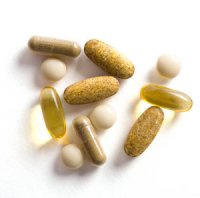Optimal digestive health is a cornerstone of overall well-being, influencing everything from mental clarity and immune function to systemic health and even weight management. This interconnectedness has fueled a growing consumer awareness of the importance of digestive health, leading to a significant expansion of the digestive health supplement industry. The easy availability of natural and herbal digestive aids has further contributed to this growth. A healthy gut microbiome, the complex community of microorganisms residing in our digestive tract, plays a critical role in these processes. Maintaining a balanced gut microbiome is essential for optimal digestion, nutrient absorption, immune regulation, and even mental health. This intricate ecosystem is influenced by various factors, including diet, lifestyle, and environmental exposures. Disruptions to this delicate balance can contribute to a range of digestive issues and other health problems, highlighting the importance of supporting digestive health through appropriate dietary and lifestyle choices, including the use of targeted supplements.
The Prevalence of Digestive Ailments and the Rise of Supplementation
It's estimated that a significant portion of the population experiences some form of digestive discomfort. Common digestive complaints include constipation, diarrhea, abdominal bloating and pain, nausea, loss of appetite, and even unexplained weight gain. These issues can significantly impact quality of life and underscore the need for effective solutions. In response to this growing need, the digestive health supplement industry has seen a surge in innovation and product development. Three key categories of ingredients dominate the digestive supplement market: prebiotics, probiotics, and digestive enzymes. These ingredients work synergistically to support various aspects of digestive function. Prebiotics provide nourishment for beneficial gut bacteria, while probiotics introduce beneficial bacteria directly into the gut. Digestive enzymes aid in the breakdown of food, enhancing nutrient absorption. This multi-faceted approach to digestive health reflects a growing understanding of the complex interplay of factors that contribute to optimal digestive function. The increasing availability and diverse formulations of these supplements provide consumers with a wide range of options to address their specific digestive needs.
Probiotics: Cultivating a Healthy Gut Microbiome
The typical modern diet, often characterized by low fiber content and high levels of fats, carbohydrates, and refined and processed foods, can negatively impact the delicate balance of the gut microbiome. This type of dietary pattern can promote the growth of pathogenic bacteria, which can disrupt digestive processes and contribute to various health issues. Maintaining a healthy balance between beneficial (probiotic) and potentially harmful (pathogenic) bacteria is crucial for optimal digestion, nutrient absorption, immune function, and overall health and well-being. The introduction of beneficial bacteria through probiotic supplementation can play a significant role in restoring and maintaining this balance. Certain probiotic strains, such as *Lactobacillus acidophilus* and *Bifidobacterium* species, have been shown to enhance the absorption of essential minerals like calcium, copper, iron, and magnesium. Furthermore, a healthy gut microbiome supports the body's production of essential nutrients, including certain B vitamins, vitamin A, and vitamin K. The market for probiotics has experienced remarkable growth, driven by increasing consumer awareness of the importance of gut health. This growth is expected to continue as research further elucidates the specific roles of various probiotic strains in supporting different aspects of health.
Prebiotics: Nourishing the Beneficial Bacteria
Prebiotics, consisting of soluble and insoluble fibers such as psyllium husk, flax seeds, and fructooligosaccharides (FOS), play a vital role in supporting digestive health by acting as food for probiotics. These non-digestible fibers provide nourishment for beneficial gut bacteria, promoting their growth and activity. This interaction between prebiotics and probiotics results in the production of beneficial byproducts, such as short-chain fatty acids (SCFAs), which offer a range of health benefits. SCFAs, including butyrate, acetate, and propionate, play key roles in gut health, including maintaining gut barrier integrity, reducing inflammation, and regulating cholesterol and glucose levels. The colon, where much of this fermentation occurs, is crucial for maintaining a healthy balance of electrolytes, such as potassium and sodium, which are essential for regulating blood pressure. Emerging research also suggests that prebiotics may play a role in promoting healthy weight management by influencing gut hormones and satiety signals. The synergistic relationship between prebiotics and probiotics, often referred to as synbiotics, highlights the importance of incorporating both into a comprehensive approach to digestive health.
Synbiotic Supplements: A Synergistic Approach
As consumer understanding of the crucial roles of probiotics and prebiotics in digestive health has grown, so too has the popularity of synbiotic supplements, which combine both prebiotics and probiotics in a single formulation. This synergistic approach offers a convenient way to support both the introduction of beneficial bacteria and their nourishment within the gut. By providing both the "seeds" (probiotics) and the "fertilizer" (prebiotics), synbiotic supplements aim to create a more favorable environment for a healthy gut microbiome. This combined approach maximizes the benefits of both prebiotics and probiotics, promoting a more balanced and resilient gut ecosystem. This combined approach is gaining increasing recognition as a more holistic and effective strategy for promoting digestive wellness.
Digestive Enzymes: Enhancing Nutrient Absorption
Following the rise in popularity of probiotics and prebiotics, digestive enzymes have emerged as another key player in the digestive supplement market. These enzymes act as biological catalysts, breaking down food into smaller, more easily absorbed nutrient components. The modern diet, often characterized by refined and processed foods, can not only lack essential nutrients but also reduce the natural enzymes present in raw foods. Overeating, high-fat diets, and stressful lifestyles can further burden the digestive system, making it difficult to efficiently break down and absorb nutrients. In such situations, supplementing with digestive enzymes can help optimize digestive processes and improve nutrient assimilation. Enzyme supplements can be categorized as digestive aids, which target the breakdown of food in the digestive tract, and systemic enzymes, which support various bodily functions beyond digestion. Deficiencies in key digestive enzymes, such as lactase, amylase, papain, and bromelain, can lead to digestive discomfort, including bloating, gas, diarrhea, and constipation. Supplementing with the appropriate enzymes can alleviate these symptoms and improve overall digestive comfort. Systemic enzymes, on the other hand, have shown promise in supporting various aspects of health, including reducing inflammation and supporting cardiovascular function. Research also suggests their potential role in managing certain gastrointestinal conditions. The market for digestive enzymes has experienced consistent growth, reflecting the increasing recognition of their importance in supporting digestive health and overall well-being.
Footnote: Research on the gut microbiome and its impact on health; Studies on the benefits of probiotics and prebiotics; Information on digestive enzymes and their role in digestion; Market analysis of the digestive supplement industry; Clinical trials on the efficacy of digestive supplements for various conditions.













